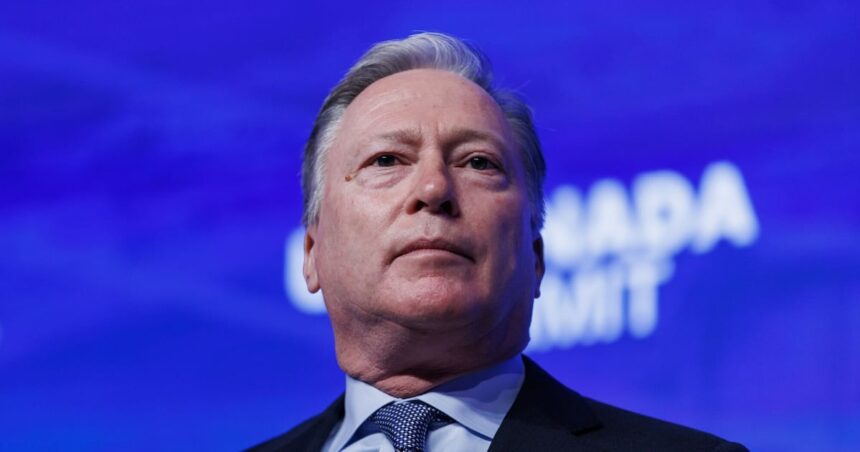In a candid assessment that has sent ripples through Canada’s energy sector, Enbridge CEO Greg Ebel declared that Canada is effectively “standing in its own way” of achieving energy superpower status despite possessing world-class resources and capabilities.
Speaking at the Toronto Economic Forum yesterday, Ebel didn’t mince words about what he sees as self-imposed obstacles hampering Canada’s energy potential. “We have everything it takes to be a global energy leader—abundant natural resources, technical expertise, and strategic geography. What we lack is the national will to capitalize on these advantages,” Ebel told a room filled with industry leaders and policymakers.
The criticism comes at a pivotal moment for Canada’s energy sector, which continues to navigate competing priorities between environmental commitments and economic development. According to recent data from Natural Resources Canada, the country holds the world’s third-largest oil reserves, yet regulatory delays have prevented several major pipeline projects from moving forward in the past decade.
“While other energy-producing nations streamline their approval processes and invest in infrastructure, Canada has created a regulatory environment where uncertainty has become the only certainty,” Ebel noted, pointing to statistics showing the average major energy project now takes 7-10 years to receive approval in Canada, compared to 3-5 years in competing jurisdictions.
The Enbridge chief specifically highlighted inconsistencies in national energy policy that have sent mixed signals to investors. Federal government data reveals that foreign direct investment in Canadian energy projects has declined by 37% since 2015, while neighboring United States has seen a 24% increase during the same period.
Energy analysts tend to agree with Ebel’s assessment. “Canada has essentially handicapped itself through regulatory complexity and competing policy objectives,” explained Dr. Amrita Singh, energy economist at the University of Calgary. “The lack of consensus between provincial and federal governments has created an environment where decisive action becomes nearly impossible.”
The economic stakes are substantial. The energy sector contributes approximately 10% to Canada’s GDP and employs over 800,000 Canadians directly and indirectly, according to Statistics Canada. Industry projections suggest that streamlined policies could potentially create an additional 200,000 jobs over the next decade.
Federal Environment Minister Steven Guilbeault responded to Ebel’s comments by defending the government’s balanced approach. “We are committed to responsible development that respects our climate obligations while maximizing economic benefits,” Guilbeault stated. “The energy transition presents both challenges and opportunities that require thoughtful navigation.”
However, provincial leaders from Alberta and Saskatchewan have echoed Ebel’s frustrations. Alberta Premier Danielle Smith characterized the federal approach as “deliberately obstructionist” and called for immediate policy reforms to accelerate project approvals.
Ebel’s critique extends beyond regulatory hurdles to what he describes as a “strategic vacuum” in Canada’s approach to global energy markets. “At precisely the moment when global energy security concerns are heightening demand for reliable suppliers, Canada is missing its opportunity to step forward as a preferred provider,” he said.
Energy security experts point to the European Union’s increased interest in diversifying natural gas supplies away from Russia as a prime opportunity that Canada has been slow to capitalize on due to limited export infrastructure.
The Enbridge CEO concluded his remarks with a call for a cohesive national energy strategy that balances environmental goals with economic imperatives. “The countries that will lead in the energy transition are those that leverage their existing strengths while building new capabilities—Canada has everything required except the unified vision to make it happen.”
As global energy markets continue to evolve amid geopolitical tensions and climate concerns, the question remains: Can Canada overcome its internal divisions to transform its natural resource wealth into strategic advantage, or will regulatory gridlock continue to constrain its energy potential?










